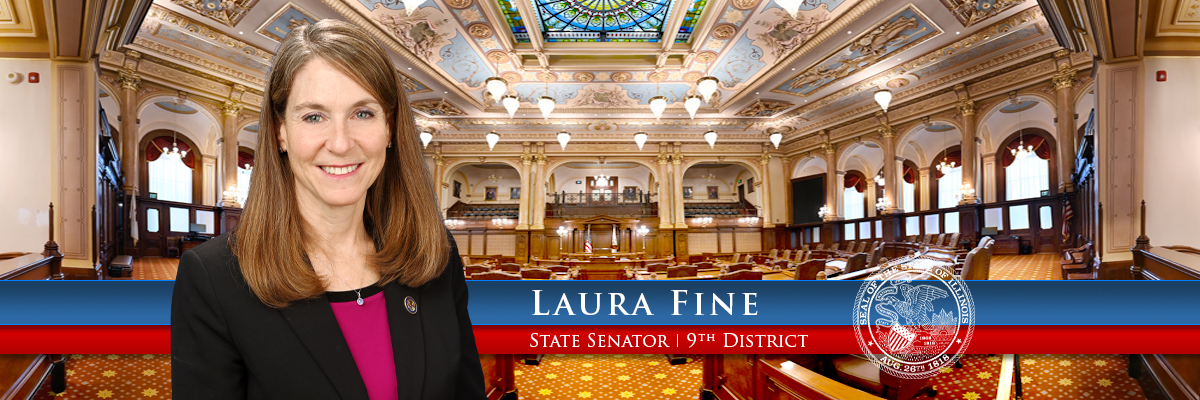Senator Fine backs measure to allow permanent ballot drop boxes
- Details
- Category: Press Releases
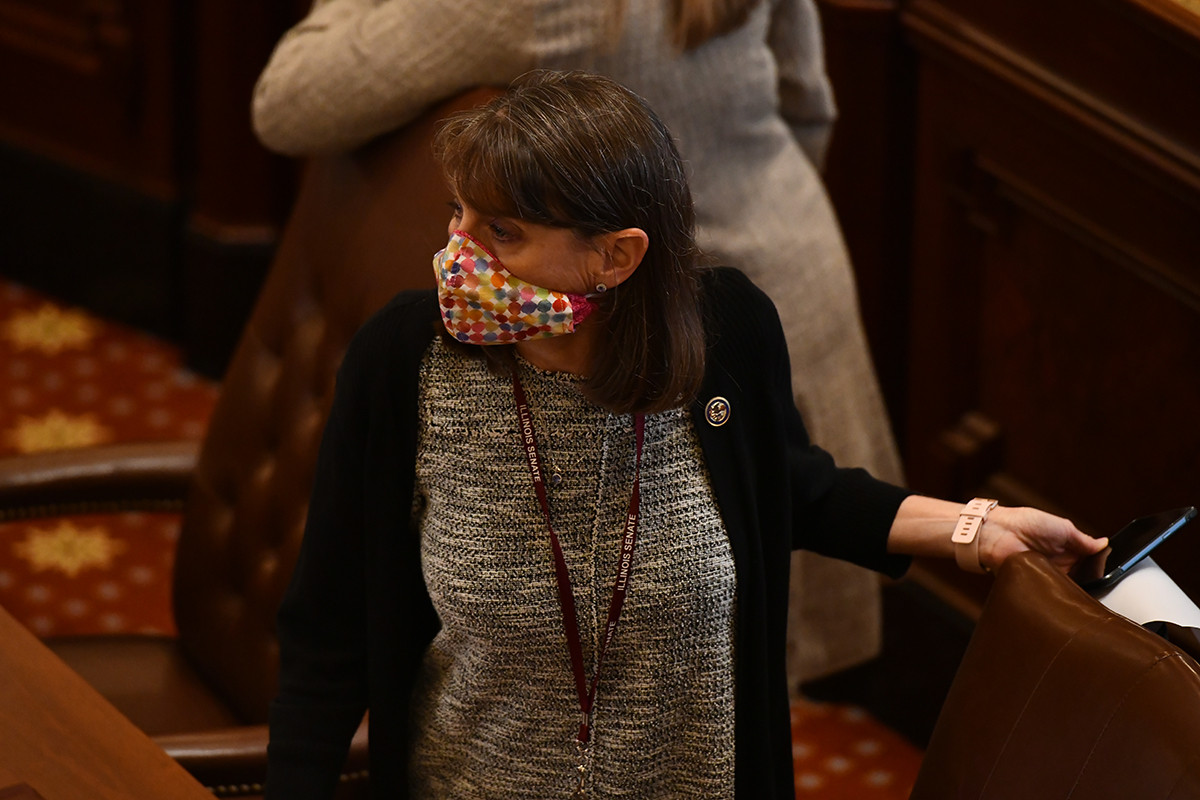 SPRINGFIELD – To allow Illinoisans to participate safely in elections during the pandemic and beyond, State Senator Laura Fine (D-Glenview) is backing a measure to permanently allow election authorities to accept mail-in ballots via secure drop boxes.
SPRINGFIELD – To allow Illinoisans to participate safely in elections during the pandemic and beyond, State Senator Laura Fine (D-Glenview) is backing a measure to permanently allow election authorities to accept mail-in ballots via secure drop boxes.
“Voting is a constitutional right not just in the presidential election, but in every election,” Fine said. “Last fall, drop boxes were a great option for older adults, people with underlying conditions and other individuals who chose to vote by mail but wanted to ensure their ballot arrived on time—this measure would ensure that option remains available for future elections.”
The bill would make permanent Senate Bill 1863, a measure passed by the General Assembly in May 2020 that allowed election authorities to establish official ballot drop boxes for the 2020 General Election where voters could submit their mail-in ballots without postage.
Nearly half of those who voted in the 2020 General Election opted to vote by mail, according to the Pew Research Center, including a majority of voters 65 and older.
U.S. Postal Service delays prompted many voters to return mail-in ballots by hand to official drop boxes to ensure they arrived in time.
Election officials across the state stress that drop boxes are a safe, tamper-proof alternative to mailing ballots. The Illinois State Board of Elections recommends drop boxes be placed in highly visible areas and locked at all times, with a limited number of people having access to the key, and state statute requires ballots to be collected at the close of business each day.
The local election authority determines the number of boxes, their locations and when they are accessible. The Illinois State Board of Elections has compiled a list of drop box locations by jurisdiction here.
The bill also extends other voting provisions introduced for the 2020 General Election, including the requirement that election authorities accept mail-in ballots regardless of postage paid by the voter and a measure allowing local election authorities to establish curbside voting.
House Bill 3994 passed the Senate and now heads to the House.
Senator Fine: Education reforms ensure equal access to opportunities, no matter students’ race, income level or hometown
- Details
- Category: Press Releases
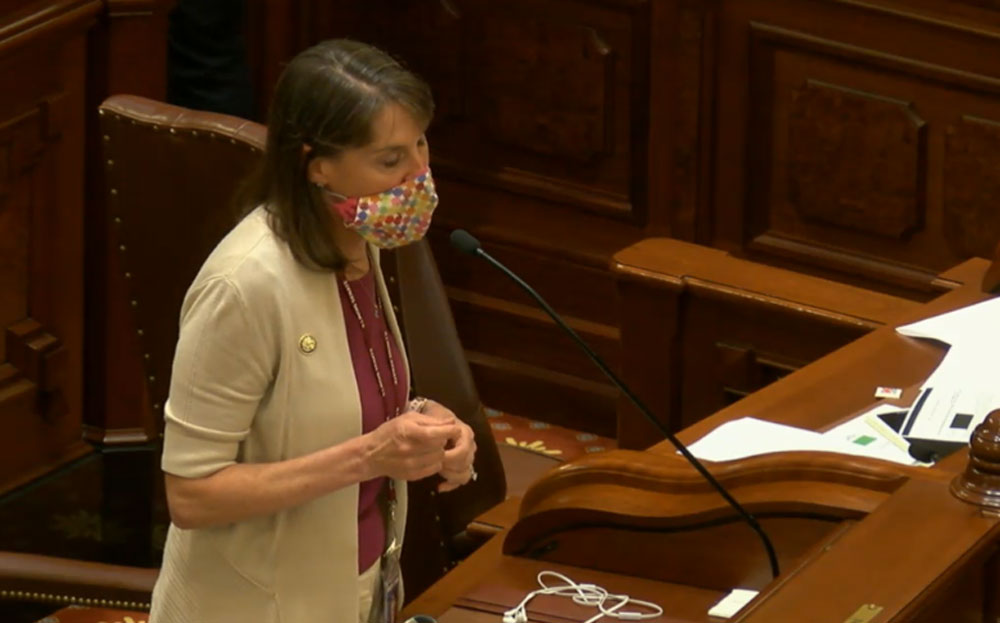 SPRINGFIELD – To help all Illinois students succeed in higher education and the career world, State Senator Laura Fine (D-Glenview) is supporting legislation to improve equity in the Illinois school system.
SPRINGFIELD – To help all Illinois students succeed in higher education and the career world, State Senator Laura Fine (D-Glenview) is supporting legislation to improve equity in the Illinois school system.
“In some school districts, students who graduate high school don’t meet the requirements to attend the University of Illinois—our state’s flagship public university,” Senator Fine said. “Establishing equitable, inclusive standards statewide will ensure every single student, no matter their race, income level or hometown, has access to the same opportunities.”
The legislation makes a number of changes to education policy in the state, from expanding eligibility for early childhood services to revamping the American history curriculum, in an effort to reduce systemic inequities in K-12 and higher education.
The bill modifies several K-12 course requirements to meet colleges’ prerequisites, establishing that students must take two years of laboratory science and two years of a foreign language (or sign language) to graduate high school starting in the 2024-2025 school year. Additionally, to ensure all students are prepared for the demands of college and the modern workforce, students must receive one year of computer literacy training.
The legislation also takes specific steps to improve outcomes for Black students, including reforming the way Black history is taught through an inclusive American history curriculum and removing barriers that prevent Black people and other people of color from becoming teachers.
“The purpose of a public education system is to make sure every student gets a solid foundation and is able to pursue their dreams after graduation,” Senator Fine said. “Some school districts are already there, but this legislation will help make sure all of our schools reach that bar.”
House Bill 2170 passed the Senate now heads to the House for final consideration before heading to the governor.
Senator Fine celebrates grand opening of COVID-19 testing site in Glenview
- Details
- Category: Press Releases
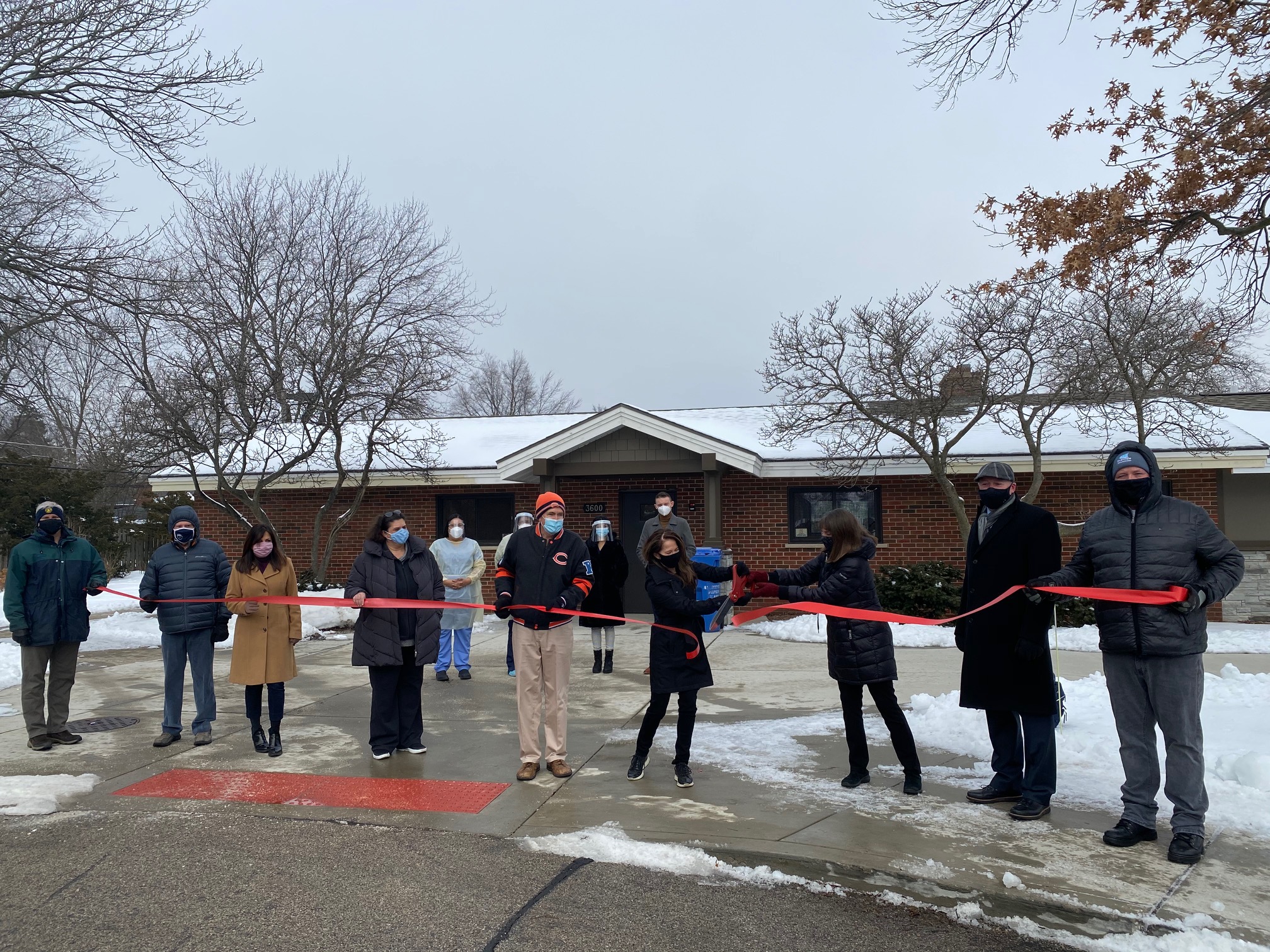 GLENVIEW – To make COVID-19 testing more convenient and accessible for residents of the North Shore, State Senator Laura Fine (D-Glenview) partnered with other local lawmakers and the Glenview Park District to open a new testing site at Flick Park Field House, located at 3600 Glenview Rd. in Glenview, starting Monday, Jan. 4.
GLENVIEW – To make COVID-19 testing more convenient and accessible for residents of the North Shore, State Senator Laura Fine (D-Glenview) partnered with other local lawmakers and the Glenview Park District to open a new testing site at Flick Park Field House, located at 3600 Glenview Rd. in Glenview, starting Monday, Jan. 4.
“Testing is a critical tool in the fight against the pandemic, but many residents don’t have the time or ability to drive long distances to a testing site,” said Senator Fine. “I’m thrilled to be able to help provide this service to the people of the North Shore community, and I encourage anyone who has been exposed or who’s feeling under the weather to get tested.”
Senator Fine partnered with State Representative Jennifer Gong-Gershowitz (D-Glenview), State Representative Robyn Gabel (D-Evanston), Cook County Commissioner Scott Britton, Congressman Brad Schneider (D-Deerfield) and Congresswoman Jan Schakowsky (D-Evanston) to bring the testing site to the area.
Testing services are provided by Northshore Clinical Labs and are available to all at no out-of-pocket cost. Those who are insured must bring their insurance card, but testing is also available to uninsured Illinoisans with an ID. The site is open Monday through Friday from 11 a.m. - 7 p.m., and Saturday from 9 a.m. - 2 p.m. Testing is available by appointment only.
Learn more and schedule an appointment at http://bit.ly/flickparkcovid. With questions, contact Northshore Clinical Labs at (773) 570-6510 or
Senator Fine reminds Illinoisans of new cap on insulin costs starting Jan. 1, 2021
- Details
- Category: Press Releases
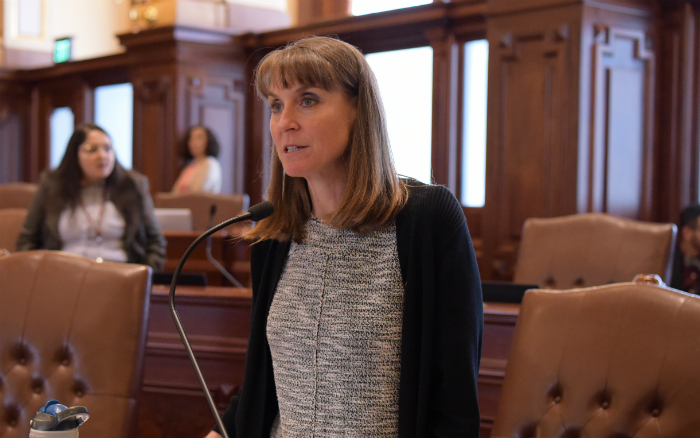 GLENVIEW – To help Illinoisans with diabetes afford life-saving medications, State Senator Laura Fine (D-Glenview) chief co-sponsored a new law that will cap the out-of-pocket cost of insulin at $100 for a 30-day supply starting Jan. 1, 2021 for patients on a state regulated insurance plan.
GLENVIEW – To help Illinoisans with diabetes afford life-saving medications, State Senator Laura Fine (D-Glenview) chief co-sponsored a new law that will cap the out-of-pocket cost of insulin at $100 for a 30-day supply starting Jan. 1, 2021 for patients on a state regulated insurance plan.
“For too long, people with diabetes have had to decide between purchasing food or life-saving medication,” said Senator Fine. “Especially when so many families are facing economic hardship, good health shouldn’t be a luxury—it’s a right.”
On Jan. 1, Illinois will become the second state in the nation to cap out-of-pocket insulin costs at $100 per month for all patients using a state regulated insurance plan, regardless of the supply they require.
Over 34 million Americans have diabetes, including 1.3 million Illinoisans, who rely on insulin to manage their blood sugar levels. Between 2009 and 2017, the price of insulin nearly tripled, leaving many patients struggling to pay for the drug and at risk of death without it.
The new law also requires the Departments of Insurance, Human Services, and Healthcare and Family Services to jointly issue an "insulin pricing report" to the public that details findings on insulin pricing practices and recommendations to control and prevent overpricing of prescription insulin drugs.
Senate Bill 667 passed the General Assembly with overwhelming bipartisan support in November 2019 and was signed into law in January 2020.
More Articles …
Page 57 of 78
